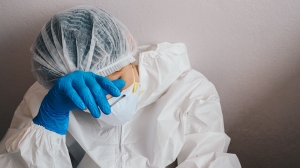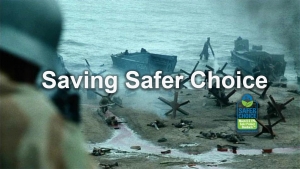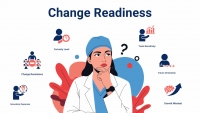Case Medical to the Rescue: Combating Planned Obsolescence
Over the past month or two, we’ve learned that several facilities and health care systems have standardized on using germicides, environmental wipes, that EPA consider pesticides for cleaning our containers and other medical devices. Most of these disinfectant wipes are carriers for highly caustic solutions with pH >11 or composed of quaternary compounds considered hazardous to human health. And they are not rinsed off!...
Penny Wise and Pound Foolish
When budgets are tight, people sometimes look for quick fixes to save on immediate costs. Unfortunately, they will end up being sorry if what looks like a less expensive product costs more in the long run.
Assessment Tools Foster Best Practices
Last month, Case Medical had another ISO Audit. We have them approximately two times a year, and it keeps us on our toes. As an ISO 13485 certified medical device manufacturer and an ISO 27001 certified software developer, a scheduled ISO audit and assessment ensures that we follow best practices...
The Healthcare System Poly Crisis and How Case Medical Can Help
If you think we are living in a time dominated by a climate crisis, a migration crisis, or a healthcare delivery crisis, you're mistaken; we are facing a poly crisis, the simultaneous occurrence of several catastrophic events that are nearly impossible to solve.
Reducing the Chemical Footprint for Better Outcomes
Employee exposure to hazardous chemicals, such as pesticides, disinfectants, cleaners, and hazardous drugs, in the workplace creates a liability for the industry, including healthcare, with some healthcare organizations paying up to $10.5 billion.
Food Dyes Banned: What does this mean for Instrument Processing
We are going through a very perilous time while we are destroying our planet with the overuse of chemicals, pollution of our wastewater streams, and continuing climate change. It is up to all of us consumers, industry and healthcare professionals to work together to reduce waste and reduce the chemical footprint before it is too late.
How to Cut Costs in a Supply Chain Crisis
Most of us realize that while we may not be in a supply chain crisis or shock yet, nevertheless we are facing a supply chain dilemma. A supply chain shock is defined as an unexpected event that disrupts the flow of goods and services within a supply chain, like a flood which we’ve experienced, an unexpected move done that too, pandemic
AI Tools: How They Can Help SPD
There was a time when processing medical devices was simple. Paper count sheets were commonly used, stick on labels identified product and location, and documents could be kept in the supervisor’s office because processing these devices was intuitive.
Persistent Prions: An Ounce of Prevention is Worth a Pound of Cure
The central role of the Sterile Processing Department (SPD) is to decontaminate surgical instruments for patient care procedures. By carefully following cleaning and sterilization protocols for used devices, the SPD plays a critical role in infection prevention. However, not all infectious agents are created equal.
Saving Safer Choice: A Call To Action
According to OSHA, hazardous chemicals are prevalent in Central Sterile Supply (SPD). Examples include concentrated liquids with extreme pH levels, sterilization liquids and gases, plasma vapors, and other disinfecting liquids and aerosols...














